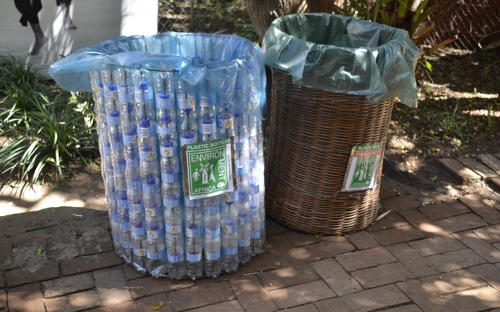COMPOSTING


Composting is a natural biological process, carried out under controlled aerobic conditions (requires oxygen). In this process, various microorganisms, including bacteria and fungi, break down organic matter into simpler substances. The effectiveness of the composting process is dependent upon the environmental conditions present within the composting system i.e. oxygen, temperature, moisture, material disturbance, organic matter and the size and activity of microbial populations.
Composting is relatively simple to manage and can be carried out on a wide range of scales in almost any indoor or outdoor environment. It has the potential to manage most of the organic material in the waste stream including restaurant waste, leaves and yard wastes, farm waste, paper products, wood etc. and can be easily incorporated into any waste management plan.
Approximately 45 – 55% of the waste stream is organic matter, composting can play a significant role in diverting waste from landfills thereby conserving landfill space and reducing the production of leachate and methane gas. In addition, an effective composting program can produce a high quality soil amendment with a variety of end uses. Up to 90% of waste thrown out of businesses like Supermarkets & Restaurants is food scraps. Food scraps are the 3rd largest segment of the waste stream with nearly 26 million tons generated each year.

